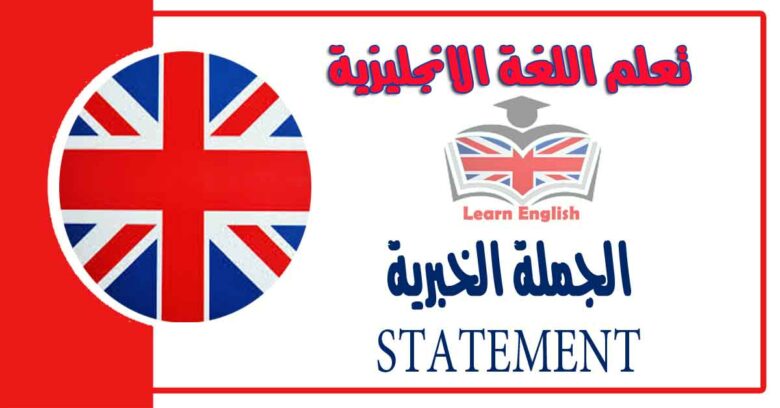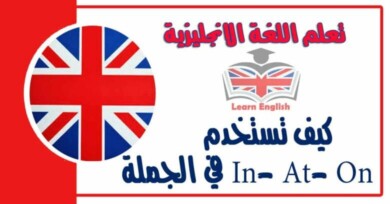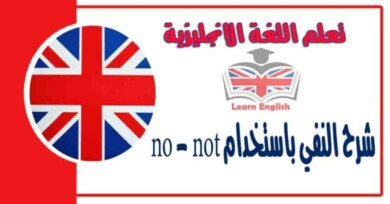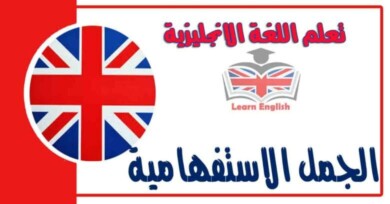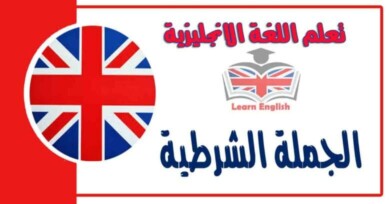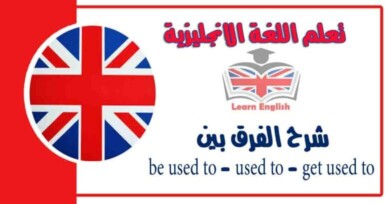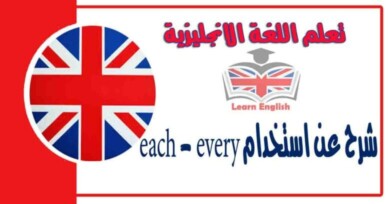جدول المحتويات
الجملة الخبرية STATEMENT في اللغة الانجليزية
STATEMENT الجملة الخبرية
تحول SAY الى TELL
- PROTEST – POINT TO – OBJECT – EXPLAIN – COMPLAIN تظل كما هي
تحذف الاقواس و تضع THAT كأداة ربط و مع ذلك يجوز الاستغناء عن THAT
تحول الضمائر حسب الحالة
اذا كان فعل القول SAY في زمن المضارع البسيط أو المستقبل البسيط فأن الازمنة و الظروف و أسماء الاشارة لا تتغير عند التحويل و يكون التغيير فقط في الضمائر
- HE SAYS , “I USUALLY VISIT MY UNCLE EVERY WEEK”
- HE SAYS THAT HE USUALLY VISITS HIS UNCLE EVERY WEEK
- HE SAYS TO US , ” I’M HAPPY “
- HE TELLS US THAT HE IS HAPPY
عند نقل الكلام في الماضي تحول المضارع الذى قيل الى ماضي
|
WAS
|
AM
|
|
WERE
|
ARE
|
|
HAD
|
HAVE / HAS
|
|
COULD
|
CAN
|
|
WOULD
|
WILL
|
|
MIGHT
|
MAY
|
|
SAW
|
SEE
|
و يحول الماضي الى الماضي التام HAD + PP
|
HAD BEEN
|
WAS
|
|
HAD BEEN
|
HAD
|
|
MAY HAVE BEEN
|
MAY BE
|
|
HAD BEEN
|
WERE
|
|
MUST HAVE BEEN
|
MUST BE
|
|
MIGHT HAVE BEEN
|
MIGHT BE
|
كما تحول أسماء الاشارة و ظروف الزمان و المكان عند الضرورة
|
Indirect
|
Direct
|
|
That
|
This
|
|
Those
|
These
|
|
There
|
Here
|
|
Then
|
Now
|
|
That day
|
Today
|
|
That night
|
To night
|
|
The next day
|
Tomorrow
|
|
The day before
|
Yesterday
|
|
The following week / month
|
Next week / month
|
|
The night before
|
Yesterday evening / last night
|
|
Before
|
Ago
|
|
Two days ago
|
The day before yesterday
|
|
In two day’s time
|
The day after tomorrow
|
- He said , ” it is hot today “
- He said that it was hot that day
- He said , ” I took a car “
- He said that he had taken a car
- He said to me , ” I went to Tanta with my father yesterday “
- He told me ( that ) he had gone to Tanta with his father the day before
- She said to her friend , ” this was my school “
- She told her friend ( that ) that had been her school
أحيانا لا يقتضى الامر تغيير أزمنة الافعال
داخل الاقواس خاصة أذا ترتب على ذلك اضطراب المعنى .
- He said , ” my name is Ahmed “
- He said that his name is Ahmed
- He said to me , ” my father enjoys good health “
- He told me that his father enjoyed good health ( but doesn’t now )
- The teacher said to us , ” the earth is round “
- The teacher told us the earth is round .
اذا كان الحديث المباشر يحتوى على جملتين خبرتين فنربطهما معا بالعبارة
- and that / and added that
- the man said , ” I know that it is wrong . I shall try to do it better tomorrow “
- the man said that he knew that it was wrong and added that he would try to do it better the next day
قد تأتى جملة he said / said he في أخر الجملة فعند تحويلها الى كلام غير مباشر نبدأ الجملة بـــــــــ he said
- ” I went to the cinema yesterday ” , he said
- he said (that) he had gone to the cinema the day before .
اذا أحتوى الكلام المباشر على المنادى فعند التحويل نفترض أن جملة القول هي
(( أسم المخاطب + said to ))
- ” you can phone me from your office , Ahmed ” , said Alice
- Alice told Ahmed (that) he could phone her from his office .
اذا بدأت جملة الحديث المباشر بكلمة yes فنحذفها عند التحويل و تحول كلمة said الى
Answered in affirmative بمعنى ( أجاب بالأثبات )
أو agree أو acknowledged بمعنى ( أقـــر )
أو admitted بمعنى ( أعتــــــرف ) أو ( سلم بـــ ) .
- He said , ” yes , this is my coat “
- He answered in affirmative (that) that it was his coat ( he acknowledged / admitted that it was his coat .
اذا بدأت جملة الحديث المباشر بكلمة no نحذفها و تحول said الى
- Answered in the negative ( أجاب بالنفي ) أو refused ( رفض ) أو denied ( أنكر )
- He said , ” no , it isn’t .”
- He answered in negative (that)it was not = ( he denied it to be so )
اذا كانت الجملة المباشرة على صورة تحية
مثل good morning تحول said الى wished
- He said to me , ” good morning . it is fine today “
- He wished me good morning and added that it was fine that day
اذا جاءت كلمة وداع مثل good-bye في الكلام المباشر تحول said الى bade
- He said to me , ” goodbye . I shall see you next week “
- He bade me goodbye and added that he would see me the following week .
اذا جاءت كلمة شكر في الحديث المباشر تحول said الى thanked
- He said to me , ” thank you very much “
- He thanked me very much
اذا جاءت كلمة اعتذار
مثل I’m sorry تحولها الى he apologized
اذا جاءت must , needn’t , mustn’t بمعنى necessity أو الالتزام compulsion لحظة التكلم (مضارع) فتحول الى الماضي في الكلام غير المباشر .
- Must – had to
- Needn’t – didn’t have to
- Mustn’t – wasn’t to
- He said , ” I must go now “
- He said he had to go then .
- He said , ” I needn’t go “
- He said he didn’t have to go .
- He said , ” I mustn’t go “
- He said he wasn’t to go
اذا كان الكلام له علاقة بالمستقبل فيكون التغيير كالتالي
- Must – would have to
- Needn’t – wouldn’t have to
- Mustn’t – wasn’t to
- He said , ” I must go next week “
- He said he would have to go the following week
- He said , ” I needn’t go next week “
- He said he wouldn’t have to go the following week
- He said , ” I mustn’t go next week “
- He said he wasn’t to go the following week
اذا جاءت must بمعنى التأكد أو اليقين
لا تتغير و كذلك mustn’t في حالة المنع أو النهى
- she said , ” he must be tired “
- she said he must have been tired
- he said to us , ” you mustn’t cross the road against the red light “
- he told us we mustn’t cross the road against the red light .
اذا جاءت جملة come here في الكلام المباشر تتحول الى go there فى الكلام غير المباشر
- He said to me , ” I shall come here tomorrow “
- He told me that he would go there the next day .
الافعال الناقصة التالية لا تتغير عند التحويل من كلام مباشر الى كلام غير مباشر
- He said , ” I would help if I could “
- He said that he would help me if he could
- ” You ought to read the instructions ,” said he .
- he advised me to read the instructions .
